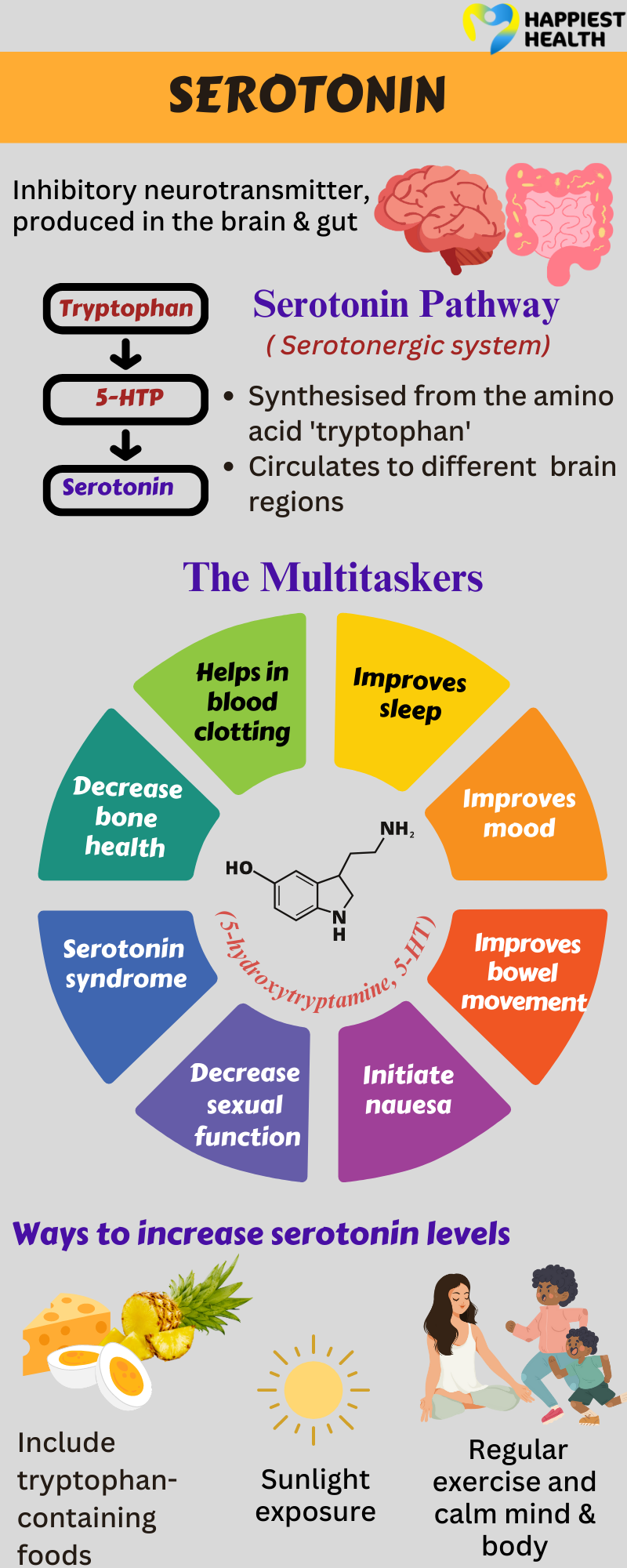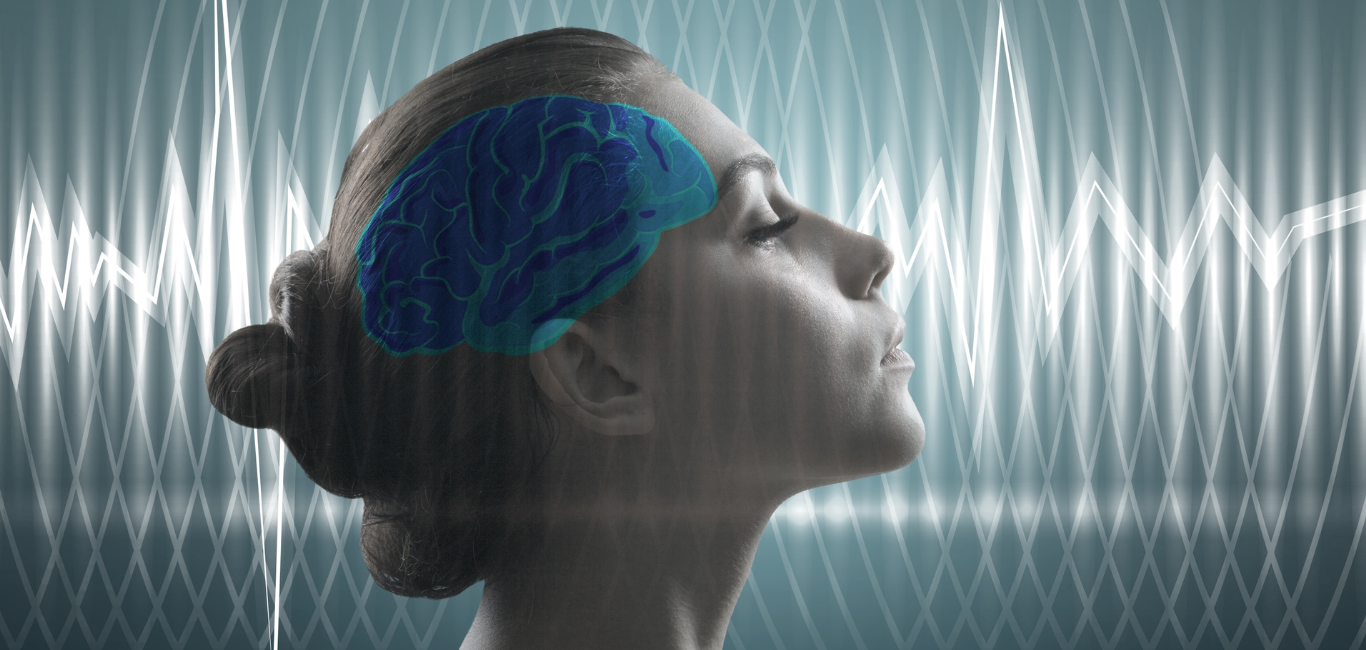Serotonin is an inhibitory neurotransmitter that regulates mood, appetite, and sleep, among other physiological processes. The brain produces 10 per cent of serotonin, and the rest, 90 per cent, comes from the gut. Often referred to as the ‘feel-good’ neurotransmitter, serotonin promotes feelings of happiness and well-being. Conversely, low serotonin levels have been associated with depression, anxiety, and other mood disorders. At the same time, excessive amounts of serotonin lead to a potentially life-threatening condition called serotonin syndrome.
Serotonin is synthesised from the amino acid tryptophan and is broken down by enzymes in the body. The resulting metabolites give a measure of the neurotransmitter’s activity.
Serotonin is targeted by many antidepressant medications, such as selective serotonin reuptake inhibitors (SSRIs), which work by increasing the amount of serotonin available in the brain.
The below infographic portrays the key aspects of serotonin.

Read more: A peek into the diverse world of neurons
Read more: Neurons: the building blocks of brain
Read more: Synapse: how neurons communicate

















